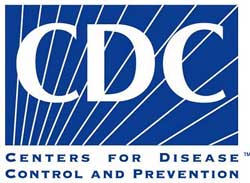According to the CDC, foodborne illness outbreaks linked to imported foods are increasing. The foods most often implicated in these illnesses are fish and spices.
 The experts analyzed outbreaks from 2005 to 2010. During that period, 39 outbreaks and 2348 illnesses were linked to imported food from 15 countries. Almost half of the outbreaks occurred in 2009 and 2010.
The experts analyzed outbreaks from 2005 to 2010. During that period, 39 outbreaks and 2348 illnesses were linked to imported food from 15 countries. Almost half of the outbreaks occurred in 2009 and 2010.
Fish caused 17 of the 39 outbreaks. Spices were second, with six outbreaks. Almost 45% of the imported foods came from Asia. And half of the foods were imported from “areas which previously had not been associated with outbreaks”, according to the report.
Dr. Hannah Gould, an epidemiologist with the CDC’s Division of Foodborne, Waterborne, and Environmental Diseases and the lead author of the study, said:
“As our food supply becomes more global, people are eating foods from all over the world, potentially exposing them to germs from all corners of the world, too. We saw an increased number of outbreaks due to imported foods during recent years, and more types of foods from more countries causing outbreaks.”
The Department of Agriculture’s Economic Research Service states that food imports grew from $41 billion in 1998 to $78 billion in 2007. The most growth came from fruits, vegetables, seafood, and processed foods. Up to 85% of the seafood eaten by Americans is imported, and up to 60% of fresh produce is imported, depending on the season.
Dr. Gould also warned that the findings “likely underestimate the true number of outbreaks due to imported foods as the origin of many foods causing outbreaks is either not known or not reported. We need better – and more – information about what foods are causing outbreaks and where those foods are coming from.”
Overall, the USDA estimates that 16% of all the food Americans eat is imported from another country. Food attribution data and traceback is a crucial part of solving and preventing outbreaks.
The Food Safety Modernization Act does focus on studying imported foods more closely. While the FDA has missed some deadlines, they did meet the mandate for foreign food safety inspections and issued guidance to the seafood industry on food safety hazards.
But the agency hasn’t issued guidance for importers in developing their foreign supplier verification programs, or completed a study about the need for a unique ID number for every import broker.




